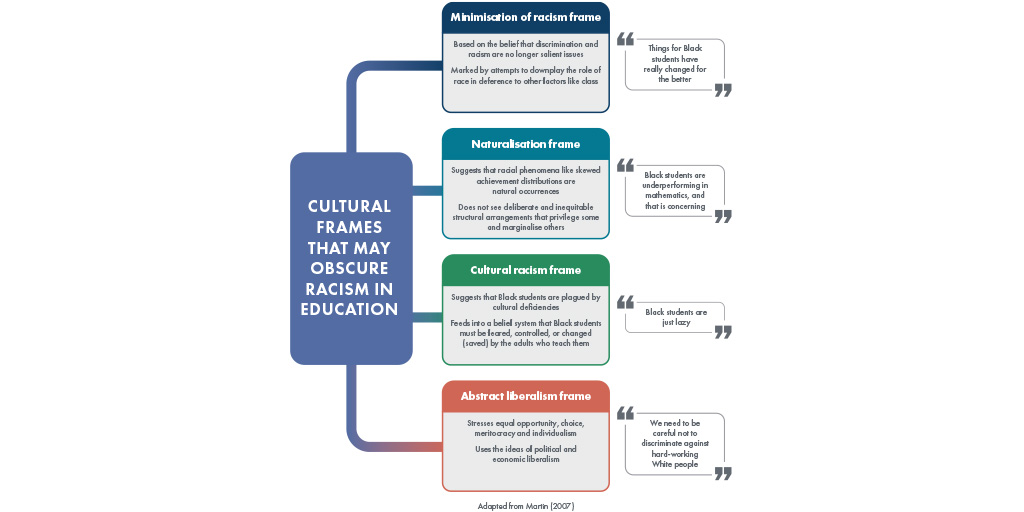29 October 2020

What does the research suggest about racial equity issues in mathematics education?
- Research, and the experiences of minoritised students, challenge the common view that mathematics is neutral
- Critical race theory may provide a useful lens with which to examine educational systems within which racism is systemically embedded in many cultural and day-to-day features of school life
- Instead of using “colour-blind” or “race-neutral” approaches, explicit talk about race and the use of counter-narratives is suggested, centring the experiences of minoritised students in the mathematics classroom
- Teachers rejecting deficit narratives surrounding Black and ethnically minoritised students allow space for these students to create their own mathematically successful identities
- Statistics on achievement should be considered in the light of the barriers both within and outside school which may have contributed to differential patterns of mathematics success
- Critical reflective practice that encourages teachers to examine their own assumptions and biases around issues of identity should form part of professional development for maths teachers
View Espresso